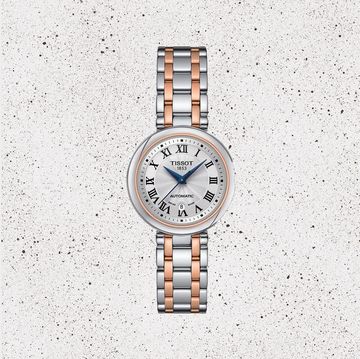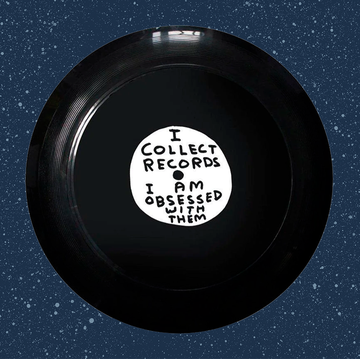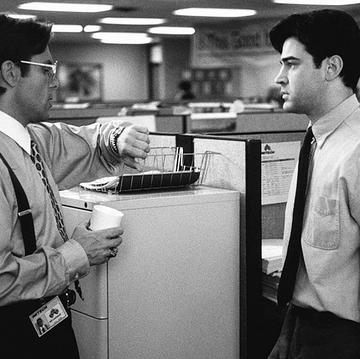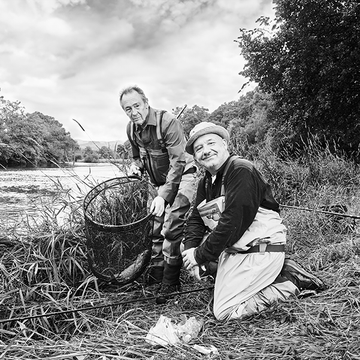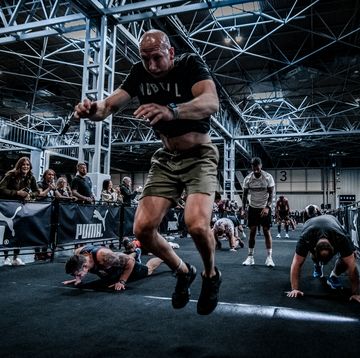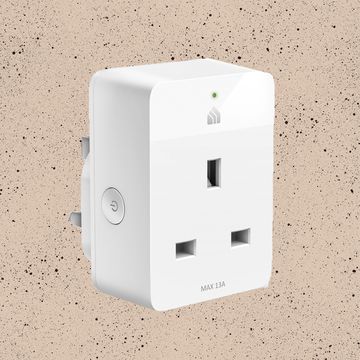At the age of 31, Scott Petinga was on top of the world. He had established a successful career in marketing and advertising and just married a woman he was wildly in love with. And then, barely a month into his marriage, during an intimate moment, she made a troubling discovery: One of his testicles was larger than the other. What followed was a whirlwind of tests and treatments that saved his life, but also led to further complications down the road. Now, 13 years later, Petinga is cancer-free but still dealing with the fallout from excessive radiation treatment.
The founder of a number of different foundations, including CACTI, the Center for Advocacy for Cancer of the Testes International, and TH!NK DIFFERENT, an organisation that provides grants for healthcare and housing causes, Petinga has recently launched underwear and condom lines to remind men to self-screen for testicular cancer. While there are only 8,850 new cases a year in men, most between the ages of 20 and 34, it is still important, especially because it’s so simple, for men to examine themselves.
Petinga told us what it’s like to have your life implode overnight when you’re diagnosed with testicular cancer, and what he hopes to do to change things for men like him.
It’s a day I celebrate every year as my cancerversary, the day I was told I could die. It was May 2, 2004, and I lived in a small borough outside of Philly. I was 28 days into being married. It was honeymoon syndrome, and we were fooling around all the time. That night, in the midst of intercourse, my wife reached down and felt a lump in my groin. You can imagine what that was like: We go from being hot and heavy to frantically scouring the internet looking for information. What does a lump in the groin equate to? The only thing that came up was pictures of Lance Armstrong during his surgery.
All of a sudden, boom, there I was, self-diagnosed as having cancer. Everything rushes through your head: What is it? What stage is it? Why me? What did I do? What didn’t I do that I should have done? I was in a car accident when I was 18 years old that reduced my military career. I thought I had faced mortality once, and to have to face it again 13 years later wasn’t something I was prepared to do.
I had experienced a bit of pain down there before that night, but I’m a guy. Part of it was “boys will be boys.” I should have noticed my right testicle was twice the size of my left one—it’s interesting how a man can overlook things. We have this Superman syndrome. We’re not taught to do self-exams. Every young woman from the time she’s pubescent upward is taught to touch her breasts once a month. Nowhere in life was I taught; my doctors never told me. I was in the Marines; they never mentioned anything. It’s the most common cancer in men 15 to 44.
First, you go see a urologist who diagnoses you. I went in because my left testicle was enlarged. Ironically, they said, “Your right one is cancerous.” I wanted a second opinion, because once it’s gone, it’s not growing back. I had multiple exams, a CT scan, X-rays, two ultrasounds, and it was true: My right testicle was the cancerous one. With most guys it’s a growth or a mass, but for some reason my testicle was dissolving.
Testicular cancer is believed to be one of the fastest spreading cancers. I was diagnosed on Monday, and I was on the surgery table by Friday. The treatment is called an orchiectomy, which is the removal of the testis via the lower abdomen wall. I just assumed they were going to cut a little hole in the sack, clip the wire, and push it out the bottom. But no, they have to remove all the tubing—it could be cancerous as well—through your belly. I wasn’t even aware of that until I woke up.
Then I started 16 rounds of radiation across my entire abdomen. I immediately became extremely fatigued; my appetite became almost non-existent, I was nauseated, and would vomit often. In a couple of weeks, the rapid weight loss took me from being a healthy 160-pound, 31-year-old male to a sickly 120-pound skeleton of myself. My body could no longer regulate its temperature, and I had to resort to wearing heavy wool socks throughout the day and even to bed. I became unrecognisable as I looked at my reflection in the mirror—no longer feeling attractive, my confidence plummeting.
I couldn’t understand why at stage one I was getting so much radiation. I never knew anyone who had had cancer, so I couldn’t pick up the phone and say, “Hey, what did you have?” Luckily now there’s a group called Imerman Angels. You can almost think of it like Match.com for cancer patients, where they match up someone who was recently diagnosed with someone who’s already been through the procedure.
I was getting treated in Reading, Pennsylvania, at a subpar medical institution. What I didn’t realize is that testicular cancer is pretty rare. Fewer than 9,000 men get it a year in the U.S. The protocol is to go to urologists, but a lot of them aren’t very skilled in treating testicular cancer, and oftentimes they might not have ever seen a case diagnosed in their entire career. My doctor was old, he had a pedigree, and I assumed he knew what he was doing. Unfortunately, years later, I realised he didn’t have a clue. What I mean by that is the 16 rounds of radiation were excessive, so much so that today the muscles in my upper chest are disintegrating from all the radiation I had 13 years ago.
Due to losing a testicle, I became infertile. Testes produce your semen, so if I lose one, I lose my baby-making material. (They also produce your hormones, both testosterone and estrogen.) I had to wait for the radiation to dissipate from my body to make sure my sperm weren’t contaminated. We waited the two-year time period, but we just couldn’t conceive. We tried and tried.
Some people grow up wanting to be doctors, lawyers, and policemen. I wanted to be a daddy. During my early twenties, I had an incredible opportunity where I was a nanny to two pretty amazing toddlers while their single mom worked. Just being able to raise and nurture an individual, someone with your traits and mannerisms, that's what truly amazed me. However, when I learned about my infertility everything came to a standstill. The one thing I ever dreamed of was no longer possible. It was truly the lowest point in my life. As a man, I always believed my masculine value was based on my physical characteristics, my ability to reproduce and provide. While surgery and the follow-up treatment left my sex drive intact, the mere fact that I was shooting blanks and had no self-esteem temporarily prevented me from even wanting to engage in sex.
But I have three incredibly amazing daughters now, two who are eight and my youngest who is six. The twins were conceived via in vitro. The second time we conceived, in 2011, almost six years later, was because the radiation had truly dissipated out of my body, and all the plumbing started to work again. We thought we couldn’t conceive, so we didn’t practice safe sex, and all of a sudden there she came. It was truly the best accident of my life.
My fertility had come back. For a percentage of men it never does. My hormones never came back though. Think of hormones essentially as gas in your car. My body was no longer producing testosterone or estrogen. I was a guy in his late thirties, on top of the world professionally with three beautiful kids, but I just didn’t have any drive. I was exhausted 24/7/365, going through the motions but not really living.
I started to get blood tests to see what was going on. I was an executive at a company, and they had an executive physical track, so I was being treated at the Mayo Clinic. They ran me through the gamut. I found it ironic that I had lost a testicle, and nowhere before or since had anyone looked at what my hormones levels were. Every post-pubescent woman and anyone who has ever had a concussion would know some of what I was struggling with: a foggy, hazy feeling, extreme pressure in my head, fatigue, insomnia, memory lapses, and hot flashes. There would be times when I was moody, emotional, and irritable. But none of the doctors I’d seen across the country, and even at Mayo, essentially the best healthcare facility in the world, wanted to check.
The Mayo Clinic believed that by supplementing my testosterone I would significantly increase my likelihood of acquiring prostate cancer—a flawed assumption. I finally put my foot down. I was falling asleep at my desk. I said, “If I have to live this way I’d rather not live.” They gave me my first hormone test in 2013. The range of male hormones goes from about 300 to 1000. It’s so large that every 18- to 80-year-old man pretty much fits into that range. I was 415—low. I started androgen replacement therapy, which is often referred to as testosterone replacement therapy.
Still, there were more changes ahead. About a year and a half ago, I got divorced.
Marriage is difficult, and it’s even more difficult when one partner is battling a disease. Notwithstanding, cancer made me understand more deeply, appreciate more quickly, cry more easily, hope more desperately, love more openly, and live more passionately. While at one point my ex-wife and I shared similar trajectories, over time our goals, motivations, and passions would go on to form separate velocity paths. The silver lining is I have three beautiful, impressive daughters and a fiancée who drives me to stay alive.
After the divorce, I started working out—trying to get into self-love—but I noticed that I wasn’t developing on the left side of my body, while the rest of me was growing more fit. I took my hand and rubbed it in the area below my collar bone, and there was a hole. After testing, they confirmed that all the radiation had collapsed my chest.
I thought it was my mission to change things and make them right, so I essentially took my life savings and invested it into medical research focused around hormones and testicular cancer. I was hoping modern research could try to reduce some of the pain for people who walk in my footsteps. The first research we undertook was to find out if my treatment was excessive. My doctor found out it was.
That’s where TH!NK DIFFERENT and CACTI came in. We have an awareness problem in America. Every guy from 15 to 44 years old and upwards needs to know they need to do monthly self-exams. Secondly, there wasn’t a good place for information, and lastly, all doctors are not created equal. I learned that myself when I was over-treated, so on the CACTI website is a list of doctors around the world who are the best of the best at treating testicular cancer.
Now I travel to Los Angeles every 10 weeks to have another batch of hormone pellets surgically implanted into my body. I’m also experiencing muscle atrophy from the radiation therapy, which limits my range of motion, as well as strikingly affects my appearance. In addition, new scientific literature suggests that I have a significant risk of getting Alzheimer’s or dementia.
There are still days where I feel beaten down, in excruciating pain and bruised from the ongoing treatment. My body is constantly changing physically, like a superhero mutated by radiation. Yet I’m thankful to be alive. Deep down I’d be foolish to think the future would be any different, but as the saying goes, “Straight roads do not make skillful drivers.”
For more information about testicular cancer, visit cacti.org, cancer.org, or cancer.gov.



